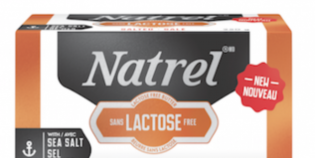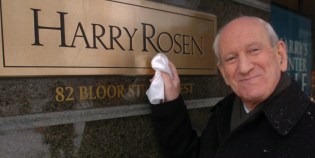Doing something good for society is no longer a nice-to-have for large companies, it’s what consumers expect, according to a new study by Havas Worldwide.
The marketing and communications firm’s latest Prosumer Report, Project Superbrand: 10 Truths Reshaping the Corporate World, looks at how corporate social responsibility has evolved over the past decade.
The report, a follow-up to 2007’s The Future of the Corporate Brand, is based on a survey of more than 10,000 adults in 28 markets including Canada, the U.S., the U.K., Brazil, France and India. The survey sample was made up of 20% “prosumers,” or those on the leading edge, and 80% mainstream consumers.
The survey found 73% of consumers believe companies have a responsibility to do more than just generate a profit; 75% believe companies have an ethical obligation to operate in a way that doesn’t harm the environment; and 53% avoid buying from companies that have a negative social or environmental impact.
“Consumers used to hope that a company was contributing back to the community or was helping to solve social issues or was treating its employees well. Now, increasingly, consumers are expecting that and demanding that,” said Tim Maleeny, chief strategy officer at Havas Worldwide.
“So, the brand story extends far beyond the advertising of the product… It’s very much about shared values now. People do business with companies they like and admire.”
In fact, more than three-quarters of prosumers said they prefer to buy from companies that share their personal values, and two-thirds of the global sample believe a clear set of values helps companies be more profitable.
Maleeny said one reason consumers expected more from companies is “their desire to accept responsibility for the communities and the world around us, both on their part, on the part of their community, and on the part of the companies.”
Another reason is the rise in social media and the increased expectation of transparency. In the survey, 78% of consumers said it is important for a company to be transparent. “There are no corporate secrets anymore,” said Maleeny. “If you’re not putting out your story, one of your employees will, either deliberately or by happenstance. So consumers are seeing that.”
A third factor is that as people’s faith in elected officials continues to drop, “people are expecting big companies to be part of the solution to the world’s biggest problems and challenges,” said Maleeny.
In the survey, two thirds of the global sample said businesses bear as much responsibility as governments for driving social change; and 62% said they’d like their favourite brands to play a bigger role in solving social problems.
Among Canadians, 72% want companies to fight injustice, 80% want companies to improve the communities in which they operate; 77% want companies to be transparent; and 84% want companies to improve the lives of its employees.
Globally, 73% of prosumers and 56% of mainstream consumers are paying more attention than in the past to the environmental and/or social impacts of the products they buy. In addition, 70% of prosumers and 51% of mainstream consumers make it a point to know more about the companies that make the products and services they use.
“If you look at companies that have built [CSR] into their business model, like Toms Shoes and Warby Parker, they’re making money, they’re premium brands, but they’re beloved by everybody and they’re doing good for the world,” said Maleeny.
“So the idea that you could give something back or be nice to your employees or do something for the community and make a profit are not mutually exclusively. Increasingly, they go hand in hand.”









